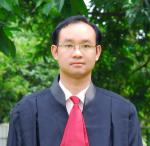CACV 394/2003
IN THE HIGH COURT OF THE
HONG KONG SPECIAL ADMINISTRATIVE REGION
COURT OF APPEAL
CIVIL APPEAL NO. 394 OF 2003
(On appeal from HCA 6915/1996)
______________________
BETWEEN:
CHINA GREAT WALL FINANCE COMPANY Plaintiff
and
WONDERYOUTH INDUSTRIES LIMITED Defendant
Before: Hon Cheung, Yeung and Yuen JJA in Court
Date of hearing: 20 October 2004
Date of Judgment: 12 November 2004
----------------
JUDGMENT
----------------
Hon Cheung JA:
1. I agree with the judgment of Yuen JA and the orders she proposes to make.
Hon Yeung JA:
2. I agree with the judgment of Yuen JA. I have nothing to add.
Hon Yuen JA:
3. This is an appeal from a judgment of Hon Reyes J given on 18 November 2003 in which he ordered:
(1) the Defendant to pay the Plaintiff a sum of USD2,997,933.18, with interest from 5 April 1990 to date of judgment at the rate of 7% p.a. (the interest from 5 April 1990 to 27 October 2003, the start of trial, having been calculated at USD3,313,111.64);
(2) the Defendant to pay the Plaintiff interest at judgment rate on the judgment sum (i.e. the principal and interest up to 18 November 2003) from the date of judgment until payment;
(3) that there be a declaration that the Plaintiff is “entitled to 50% of the net sale profit arising from any sale of the Property?(a property known as La Salle Court) and
(4) the Defendant to pay the Plaintiff’s costs of the action, to be taxed if not agreed.
Background
4. The Plaintiff is a state-owned company set up under the laws of the People’s Republic of China. The Defendant is a Hong Kong private company.
Claim
5. The Plaintiff’s claim was based on a document in Chinese bearing the date 6 January 1991 and entitled “Loan Agreement?which the Plaintiff alleged was an agreement in writing, as well as on a Supplemental Agreement signed by the Defendant on 28 March 1996.
6. It was common ground that a total sum of USD4.3m. was transferred from the Plaintiff to the Defendant in 3 tranches, the first on 5 April 1990.
7. It was also undisputed that the Defendant entered into an agreement to acquire a property in Hong Kong known as La Salle Court on 21 May 1990.
8. The Plaintiff alleged that although the Loan Agreement provided that the Defendant would repay the loan together with interest at 7% p.a. by 20 May 1993, there was only 1 repayment (of USD200,000) on 15 March 1996.
9. It was common ground that subsequently, the parties signed a Supplemental Agreement in English which is reproduced below:
“This agreement is made on the 19th day of March, 1996 between:
Party A :
Wonderyouth Industries Limited, having a business address at 1704 C.L.I. Building, 313 Hennessy Road, Wanchai, Hong Kong. and
Party B :
China Great Wall Finance Company, having a business address at A11, Nan Cao Chang Street, Xi Zhi Men Nei Avenue, Xi Cheng District, Beijing, P.R. China.
Based on the loan agreement between Party A and Party B dated on Jan. 6, 1991, the two parties agreed to settle all issues according to the following:
1) Party A will make a repayment of total USD4,100,000 or its equivalent currency amount to Party B within 30 days after both parties signed this settlement agreement. This amount of USD4,100,000.00 is calculated based on the original loan amount minus the USD200,000.00 that Party A had paid to Party B on March 15, 1996.
2) Party A will make an interest repayment on or before 30th September 1996 for the total interest of the loan (based on attached loan agreement) minus any previous payment that Party A had repaid to Party B or its affiliated Companies in the past.
3) In appreciation of the extended loan, Party A agreed to let Party B share 50% of the selling profit for La Salle Court property after minus all related costs.
4) This agreement is a supplement agreement to the loan agreement dated Jan 6, 1991 and becomes effective when both parties signed. This two agreements will supersede all other previous agreement both verbal or written.
5) This agreement is under the law of Hong Kong.
PARTY A
PARTY B
[Defendant]
[Plaintiff]
Name: Mr. Dennis Yip
Name: Wang Zhi
Title: Managing Director
Title: Chairman of the Board of Directors
Date signed: 28th March 96
Date signed:
Attachment: Loan agreement between the two parties dated Jan 6, 1991" (emphasis added).
10. The Plaintiff’s case on the pleadings was that although the date of repayment was subsequently extended to 13 May 1996, the Defendant made only 3 repayments: RMB 2m on 30 April 1996, USD137,001 on 10 May 1996 and USD485,834.38 on 3 June 1996. The Plaintiff claimed the balance outstanding.
11. The Plaintiff claimed (in paragraph 10 of the Re-Amended Statement of Claim) interest at 7% p.a. pursuant to the Loan Agreement and the Supplemental Agreement, and further or alternatively (in paragraph 11 of the Re-Amended Statement of Claim) interest "at such rate and for such period" as the Court deemed just. Although the High Court Ordinance was not specifically pleaded, it has not been disputed by counsel for the Defendant that this was a claim for interest on the statutory basis.
Defence
12. The Defendant raised a number of defences in its Re-Amended Defence, but only 2 are relevant to this appeal.
"Loan Agreement" and repayments
13. First, the Defendant denied that the parties had entered into the Loan Agreement and alleged that the sum of USD4.3m had been a "cash injection into the Defendant by Mao Zhi-ren [who was said to be the senior representative of the China Great Wall group of companies resident in Hong Kong] and/or the Plaintiff for the purposes of specific investment, and which cash injection has been fully or partly repaid".
14. In this respect, it was conceded by the Defendant at trial that the Plaintiff had loaned it USD4.3m, but it said it had made repayments allegedly by way of (a) 13 payments made between 18 December 1990 and 4 June 1996; (b) a series of transfers from the Defendant’s account with Lehman Brothers to an account in the name of Silver Good Development Ltd, a Hong Kong company that the judge assumed to be part of the group of which the Plaintiff is the finance company; and (c) losses arising from dealings in a Foreign Exchange Margin Account held by the Defendant with the Bank of America, which account the Defendant said was operated by Mao with its (the Defendant’s) authority.
15. As noted above, the Plaintiff had accepted on the pleadings that there were a total of 4 repayments. At trial, the Plaintiff was prepared to accept 2 further payments (the Defendant’s settlement of a solicitors bill of HKD199,250 on 12 December 1991 and a payment of USD200,000 to the Plaintiff on 3 December 1993) as going towards reduction of the USD4.3m.
Illegality and/or unenforceability
16. Secondly, the Defendant alleged that the Loan Agreement was illegal and/or unenforceable as the Plaintiff was prohibited under PRC laws from lending money to it and/or for purposes of investment in Hong Kong. It was not pleaded in the Re-Amended Defence that the Supplemental Agreement was similarly illegal and/or unenforceable. The only specific defence in respect of the Supplemental Agreement was that paragraph (3) - under which the Defendant "let [the Plaintiff] share 50% share of the selling profit for La Salle Court property" etc. - did not correctly reflect the oral agreement reached between the parties and that it had been drafted in that way by mistake: paragraph 17(e) Re-Amended Defence.
Unenforceability of paragraph (3) for uncertainty
17. Although not pleaded as a defence, the Defendant also argued at trial that paragraph (3) of the Supplemental Agreement was too vague to be enforceable. The Plaintiff did not take any point that this defence was not open to the Defendant on the pleadings.
Disallowing interest for delay
18. Finally, although also not pleaded, the Defendant invited Reyes J to disallow some of the interest by reason of the Plaintiff’s delay in bringing the action to trial.
Evidence
19. Reyes J heard oral evidence from Wang Zhi, who had signed the Supplemental Agreement as chairman of the Plaintiff’s board of directors, and from Dennis Yip Heon-wai, the Defendant’s Managing Director.
20. In respect of the defence of illegality and/or unenforceability, the Defendant provided an expert report from Mr David Dali Liu, a PRC lawyer, dated 20 August 2002. Mr Liu’s opinion was that assuming that the Defendant was not a member of the China Great Wall group of which the Plaintiff was the finance company, and that as a matter of Hong Kong law, the transactions under the Loan Agreement and the Supplemental Agreement constituted loans,
"[the Plaintiff] was not permitted by the laws of the PRC to make the said loan transactions with [the Defendant] and [the Plaintiff] has exceeded its scope of business as set out in its business licences when making the said loan transaction with [the Defendant]".
21. The Plaintiff provided an expert report on PRC law from Professor Bing Ling dated 17 November 2002. Professor Ling agreed with Mr Liu that the Loan Agreement was void but disagreed with (part of) Mr Liu’s reasons. He was of the opinion that the Loan Agreement was invalidated because statutory restrictions on the Plaintiff’s business had not been complied with, but not because it had exceeded its scope of business.
22. Professor Ling stated however that under PRC law, the Plaintiff could claim restitution of the principal plus interest on the basis of unjust enrichment, or alternatively on the basis of return of property transferred under a void contract. The applicable interest rate was 0.03% to 0.05% per day (which worked out at higher than 7% p.a.).
23. There was no further report and neither expert was cross-examined at trial.
Reyes J’s judgment
"Loan Agreement" and Supplemental Agreement
24. In a detailed judgment, the judge found, in respect of the first defence, that the Loan Agreement did not reliably reflect the terms on which USD4.3m was advanced.
25. The judge held however that as the Defendant accepted that it had received that sum on loan from the Plaintiff, the consequence of that was that, subject to questions of illegality, the Defendant came under an obligation to repay the same to the Plaintiff.
26. The judge found that the Supplemental Agreement was a settlement agreement - as the parties themselves described it at paragraph (1) of the document - and that in consideration for the Plaintiff not pursuing whatever claims it might have under the Loan Agreement, the Defendant agreed to abide by the payment terms in the Supplemental Agreement. Therefore, whatever the strength of the Plaintiff’s case on the Loan Agreement as a standalone document, the Supplemental Agreement was a valid enforceable contract in its own right.
27. The judge held that under that contract, the Defendant agreed to be bound by the terms set out in the Loan Agreement as modified by the Supplemental Agreement.
Repayments
28. In respect of the alleged repayments, the judge found that the Defendant had failed to prove that the disputed payments made to companies other than the Plaintiff were made at the Plaintiff’s behest and should be treated as being in reduction of the outstanding balance.
Illegality and/or unenforceability
29. The judge noted that Mr Liu’s report did not explain what happened under PRC laws if a loan is invalid, such as whether the lender (the Plaintiff) could recover monies already advanced under restitutionary principles. Professor Ling’s report which covered this aspect had not been challenged.
30. The judge therefore held that even assuming that PRC laws applied to the Supplemental Agreement (the issue possibly being the Plaintiff’s capacity to enter into that agreement), there was no objection under PRC laws to the Plaintiff’s enforcement of the Supplemental Agreement.
Unenforceability of paragraph (3) for uncertainty
31. In a brief discussion at paragraph 151 of his judgment, the judge dealt with the Defendant’s submission on the unenforceability of paragraph (3) in the following way:
"Accountants routinely calculate net profit arising from the disposition of a capital asset. The expression ["share 50% of the selling profit for La Salle Court property after minus all related costs"] must refer to half of the net profit arising from a sale of the property".
Interest
32. Finally, regarding the award of interest, the judge considered the period of time that had elapsed between the issue of the writ in 1996 and the trial. He took into account the Defendant’s unsuccessful attempt in November 2000 to strike out the action for want of prosecution and held that the delay since the Re-Amended Defence (which contained substantial amendments) was not such as to warrant depriving the Plaintiff of any part of the interest.
Appeal
Repayments
33. It would be convenient to deal first with the Defendant’s submission on appeal that the judge erred in rejecting the defence of repayments.
34. Briefly, the submission was that in the absence of evidence of any other reason for the Defendant to have made the disputed payments to the other companies, the judge should have found or inferred that it was the Plaintiff (through Mao) which had given instructions for the payments to have been made, especially since some other payments had been accepted as going towards reduction of the outstanding balance.
35. I am not persuaded by this submission. It cannot be disputed that the Defendant had the evidential burden of proving that payments made to other companies should be treated as repayments to the Plaintiff. The judge had considered each of the disputed repayments and the evidence regarding the Lehman Brothers account and the Foreign Exchange Margin Account. He had taken into account the paucity of documents such as accounting records and receipts. He was dissatisfied with the vagueness of Mr Yip’s evidence. In conclusion he found that the Defendant had failed to discharge that burden. On the evidence before him, the judge was entitled to come to that conclusion.
Unenforceability of Supplemental Agreement
36. I come then to the submission that the Supplemental Agreement was unenforceable given the judge’s rejection of the Loan Agreement. I am also not persuaded by this submission.
37. The Supplemental Agreement had described itself as a "settlement agreement". As such, it had a life of its own as a compromise and therefore it was not, as the Defendant submitted on appeal, "parasitic" upon the validity of the Loan Agreement. Nor was it necessary for the Plaintiff to plead a restitutionary claim in this action. The action was based on both the Loan Agreement and the Supplemental Agreement, and the claim on the latter was a contractual claim because a compromise is by nature a contract.
38. The Defendant sought to rely on the principle that a compromise of a claim is not contractually binding if the claim is legally invalid and the party asserting it either knows it to be invalid, or does not believe it to be valid (Chitty on Contracts 29th ed Vol. 1 General Principles, §3-050).
39. There was no evidence that the Plaintiff knew that its claim was invalid. In fact, this was never put or even suggested in cross-examination of Mr Wang.
40. As for the Defendant’s submission that the Plaintiff "must be taken" to have known of the invalidity of the loan under PRC laws (In re Pilet ex parte A. Toursier & Co and Berkeley and anor [1915] 3 KB 519, 526), even assuming that to be correct, the concomitant of that must be that the Plaintiff must also be taken to have known of the restitutionary remedies it had under those laws. Mr Fok SC (who did not appear below) did not challenge the proposition that where parties assume the consideration for a contract to be X, when actually consideration is given in the form of Y, the contract is still supported by consideration. In any event, whatever might have been the precise legal foundation of a claim by the Plaintiff for return of the funds, the Defendant obtained from the Supplemental Agreement what it bargained for, which was a settlement of that claim.
Interest
41. It may be convenient to deal now with Mr Fok SC’s submission on interest. His submission was that in view of the invalidity of the Loan Agreement, the judge was wrong to award interest for any period earlier than the due date for repayment under the Supplemental Agreement.
42. This submission is on the basis that the judge had awarded interest on a contractual basis. However, apart from the adoption of the rate of 7% p.a., there are no grounds for assuming that the judge was awarding interest on the contractual basis. The judge did not say so. More importantly, it is evident from the discussion at paragraphs 142-145 of the judgment that, in declining the Defendant’s request to disallow part of the interest for delay, the judge was considering the award of interest on the statutory basis. If it had been the Defendant’s case that contractual interest could be disallowed, one would have expected discussion on submissions whether one could imply a term in the contract that the Plaintiff should pursue its claim against the Defendant within a reasonable time.
43. As for the judge’s decision not to disallow statutory interest for delay, this was of course a matter for the judge’s discretion. There is no indication that the judge had erred in law or had misapprehended any fact when exercising his discretion, nor can it be said that his decision was "plainly wrong" in the sense that it went outside the generous ambit within which a reasonable disagreement is possible. Accordingly I do not think that this court should interfere with his order on interest.
Unenforceability of paragraph (3) for uncertainty
44. Finally there is the question of paragraph (3) of the Supplemental Agreement. The relevant clause stated:
"Party A [the Defendant] agreed to let Party B [the Plaintiff] share 50% of the selling profit for La Salle Court property after minus all related costs" (emphasis added).
45. It is well-established law that the court should be reluctant to find an agreement void for uncertainty, but this clause poses a number of difficulties both in construction and substance which have not been resolved. The judge construed the clause to mean that the Defendant would pay the Plaintiff 50% of the net profit from a sale of the property. However it is by no means clear whether "all related costs" should be construed to mean related to the sale, in which case only the usual charges on the disposition of a property such as conveyancing and estate agents?charges should be deducted, or whether "all related costs" should be construed to mean related to the making of the profit, in which case the costs of acquiring the property (which would include interest paid and payable to the Plaintiff) might also have to be deducted.
46. Also troubling is the question of what the respective parties should be taken to have intended in respect of sale of the property. It is common ground that there was no evidence of an impending sale at the time of the Supplemental Agreement which might have formed part of the factual matrix. The question then arises as to what the parties intended regarding the timing of the sale and the price at which the property should be sold.
47. Mr Anthony Chan SC for the Defendant submitted before this court that the law would imply an obligation on the part of the Defendant to sell the property within a reasonable time of the Supplemental Agreement (which has probably elapsed). But the question would then be: did the parties intend, by that clause, to require the Defendant to sell the property within a reasonable time, irrespective of whether any profit would be made on the sale?
48. Mr Chan SC then submitted that the parties intended by the clause to mean that the Defendant would have to sell the property within a reasonable time so long as the sale would meet "reasonable commercial expectations" of profit. With respect, that formulation - which in effect raises the question of how much profit is ever reasonably enough - asked more questions than it answered.
49. Mr Chan SC was driven to submit that the clause meant that the Defendant had the sole discretion to decide on the price at which the property would be sold. However, uncertainties still remain. In exercising that discretion, what duties, if any, did the Defendant owe the Plaintiff? If none, were the parties intending by that clause to give the Plaintiff merely a right to share in a fund which might never come into existence and the creation of which the Plaintiff could never compel?
50. In my view, with much respect to the judge, the parties have expressed themselves far too vaguely and the clause as drafted is unworkable unless it is substantially rewritten. As such, the court is constrained to hold the clause void for uncertainty.
Order
51. By reason of the above, I would allow the appeal to the extent only of setting aside the declaration. The rest of the appeal is dismissed. As for costs, I would give an order nisi that the Defendant is to pay 80% of the Plaintiff’s costs of the appeal.
(PETER CHEUNG) (WALLY YEUNG) (MARIA YUEN)
Justice of Appeal Justice of Appeal Justice of Appeal
Mr Anthony KK Chan SC instructed by Fairbairn Catley Low & Kong for the Plaintiff (Respondent)
Mr Joseph Fok SC and Mr Russell Coleman instructed by Deacons for the Defendant (Appellant)
==========================================================================================
为尽量避免给当事人造成不良影响,经当事人本人申请110.com将对文章内容进行技术处理,点击查看详情。
==========================================================================================











